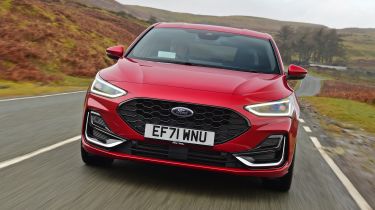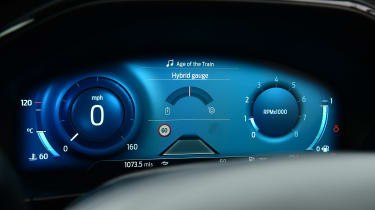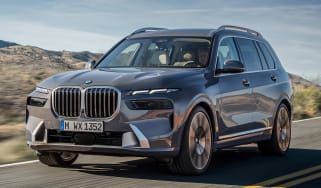Ford Focus review - MPG, CO2 and running costs
The Focus offers great fuel economy, is reasonable to insure and doesn't fare too badly come resale time

While the Mk4 Ford Focus was offered with a choice of petrol or diesel power at launch, Ford's ubiquitous 1.0-litre EcoBoost petrol engine is now the only option. It features mild-hybrid technology and comes in two power outputs, with the 123bhp and 153bhp versions capable of returning up to 52.3mpg and 54.3mpg respectively. Both emit 116g/km of CO2.
When we tested the base 123bhp EcoBoost six-speed manual model (the only version that doesn't feature mild-hybrid assistance) against a VW Golf and Vauxhall Astra, the Focus managed to achieve 44.6mpg, compared to the Golf's 44.3mpg and 47mpg we saw from the Astra.
The now-discontinued 1.5-litre 118bhp EcoBlue diesel delivers a claimed 57.6mpg on the combined WLTP test cycle and 120g/km of CO2.
The more powerful 2.3-litre ST petrol manual model achieves 35.3mpg, although CO2 emissions are much higher at 183g/km. The automatic version manages just a touch better with an average of 35.8mpg and 182g/km.
Any Focus Estate model will trail its five-door hatch slightly on emissions and fuel economy, but it remains competitive with its rivals on this front.
Insurance groups
The most basic Ford Focus models should be fairly cheap to insure. Trend models start at group 12, while a 153bhp ST-Line version comes in at group 16. The most expensive to insure is the Focus ST, although it still sits in group 27 on the 1-50 scale.
Our Car Tax Checker tool lets you check your tax status and renewal date in seconds. Check your VED car tax now...
Depreciation
The Mk4 Focus had predicted residual values of around 42 per cent over three-years and 36,000-miles, but the introduction of the facelifted model and a stronger used market mean that owners should see an average return of around 54 per cent of their car's original list price after the 36-month period.
To get an accurate valuation on a specific model check out our valuation tool...










